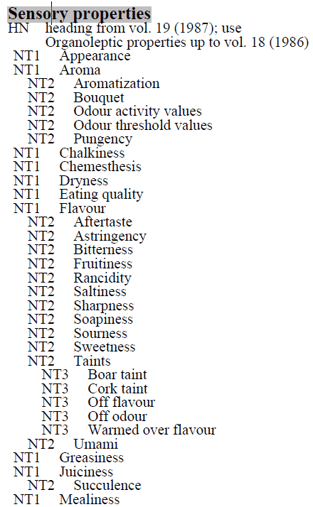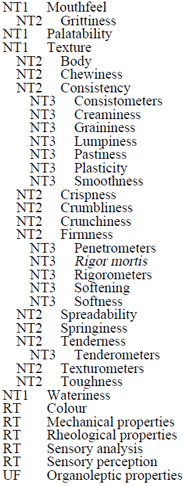At IFIS, we pride ourselves on getting to know and understand our customers. But who are they and how can we help them?
Taken literally, our customers are the organizations who subscribe to the FSTA database. This comprises universities, food companies, government bodies, and research institutes around the world. Because they buy and access FSTA via one of our platform partners such as EBSCO, Ovid or Web of Science, many of our customers would not generally anticipate receiving any extra support from us, as the database publisher.
We wanted to change that, and to hear directly from FSTA users. Engaging with our customer community – the librarians who manage subscriptions and train users, the industry scientists using FSTA for product development, and faculty and students using FSTA for their research and assignments – is incredibly important for us. We have proactively reached out to all of those different groups of users in order to better understand how they approach searching for scientific food and nutrition information, what tools they use, the barriers and frustrations they face, and how they use and view FSTA, in particular.
This communication is invaluable to help us continue to enhance FSTA, both in content and functionality. We also forward relevant feedback on the FSTA platforms to our vendor partners to enable them to continuously improve.
On the topic of barriers and frustrations, our conversations with FSTA users also identified some recurring issues they faced in their roles:
-
Academic librarians highlighted concerns regarding the quality of searches being performed in the food science arena. 86% of Respondents were concerned about the quality of literature reviews - Maria Helena Korjonen & Caroline C. Barratt (2019)
-
Students and early career researchers expressed uncertainly about how to publish their research.
-
Accessing quality data is a concern for all, how do you identify fake science?
As an educational not-for-profit organization, our mission is to fundamentally understand and best serve the information needs of the food community. We are in the ideal position to help solve these kinds of issues and questions for everyone working with food information, whether they are an FSTA subscriber or not.
Through further discussions with a range of both FSTA subscribers and non-subscribers, plus independently commissioned research, we have developed a variety of free tools and resources. These are accessible to the whole community to aid in food science and nutrition related information researching and publishing.
To begin this process, we created a brand-new role at IFIS dedicated to FSTA training and information literacy skills. Carol Hollier joined us in 2019, bringing with her 10 years of experience as a research librarian at university libraries in both the USA and the UK. Carol has been invaluable in developing our new resources and supporting material, such as the Best Practice Guide for Literature Searching, the Journal Recommendation Service (edit, 2 Aug 2023 - The JRS closed on the 31 July 2023; please visit the webpage for information about alternative resources), and a complimentary e-learning module SCORM package for librarians and faculty who teach information literacy to add to their university’s LMS (edit, 3 December 2025 - The e-learning module closed on 30 November 2025; please visit our other excellent best practice resources). Her expertise and enthusiasm have been fundamental in enabling us to address those barriers and frustrations identified and support the community better than ever before.
Feedback about the best practice guide
"Your Guide is simply superb. Many thanks for a great resource which I will be promoting with advanced stage degree students in food science agriculture and veterinary medicine here in UCD. It is the best guide I have come across in some time so many thanks for this "Toolkit". This will be invaluable for UCD - Students, those new to research, and those who need a refresher in literature searching."
Carmel Norris, College Liaison Librarian, School of Agriculture & Food Science, University College Dublin

We want to ensure that our customers get the best out of their FSTA subscription, so we offer free training on each of the platforms. A key part of my role as Customer Relations Manager is to arrange and deliver training, and to help identify where new resources would be helpful. Based in the UK, we have limited opportunity to visit many of our global customers directly, especially with the current travel restrictions in place. However, we reach out whenever we travel to see if customers in the area would like to meet or arrange face-to-face training for their library users.
Where a visit is not possible, we offer bespoke live webinars, which can be tailored to the attendees’ search queries and can focus on specific interdisciplinary content. Any FSTA user at the customer institution or business is welcome to join, including librarians, faculty members, students, and industry scientists. We also run regular drop-in webinar sessions on both FSTA training and best practice in literature searching, hosted by Carol. These are free, open to anyone, and have scheduled start times to accommodate time differences around the world.
There is a common misconception that FSTA is purely for food science and technology information. Therefore, during training, we give an overview of the interdisciplinary content available to help our customers understand the breadth of coverage, such as microbiology, veterinary medicine and public health. This can even identify other departments which could be benefiting from their existing access to FSTA. And of course, we give a live demonstration of the database in action, which includes showing how to use our unique thesaurus of food and nutrition terms to improve search efficiency and effectiveness.


Example from the IFIS food thesaurus hierarchy, demonstrating the depth of our narrower terms
In addition, Angela Ball serves as the main IFIS liaison with the account managers at EBSCO, Ovid and Web of Science to ensure that any customer concerns are relayed to the platforms, as well as working with them to ensure a smooth renewal process for all subscribers.
You can contact Angela regarding webinars or any customer related questions at a.ball@ifis.org, we would love to hear from you.
Reference: Maria Helena Korjonen & Caroline C. Barratt (2019): The Role of the Academic Librarian in the Sciences of Food and Health, Science & Technology Libraries, DOI:10.1080/0194262X.2019.1585310
Images: Tim Mossholder, John Schnobrich on Unsplash
Related resources:
- What is the difference between a systematic review and a systematic literature review?
- The IFIS Expert Guide to Journal Publishing
- How we identify and exclude predatory journals
- Predatory publishing: Investigating researchers’ knowledge & attitudes
- Making mental health part of the culture at IFIS – the Time to Change Employer Pledge


